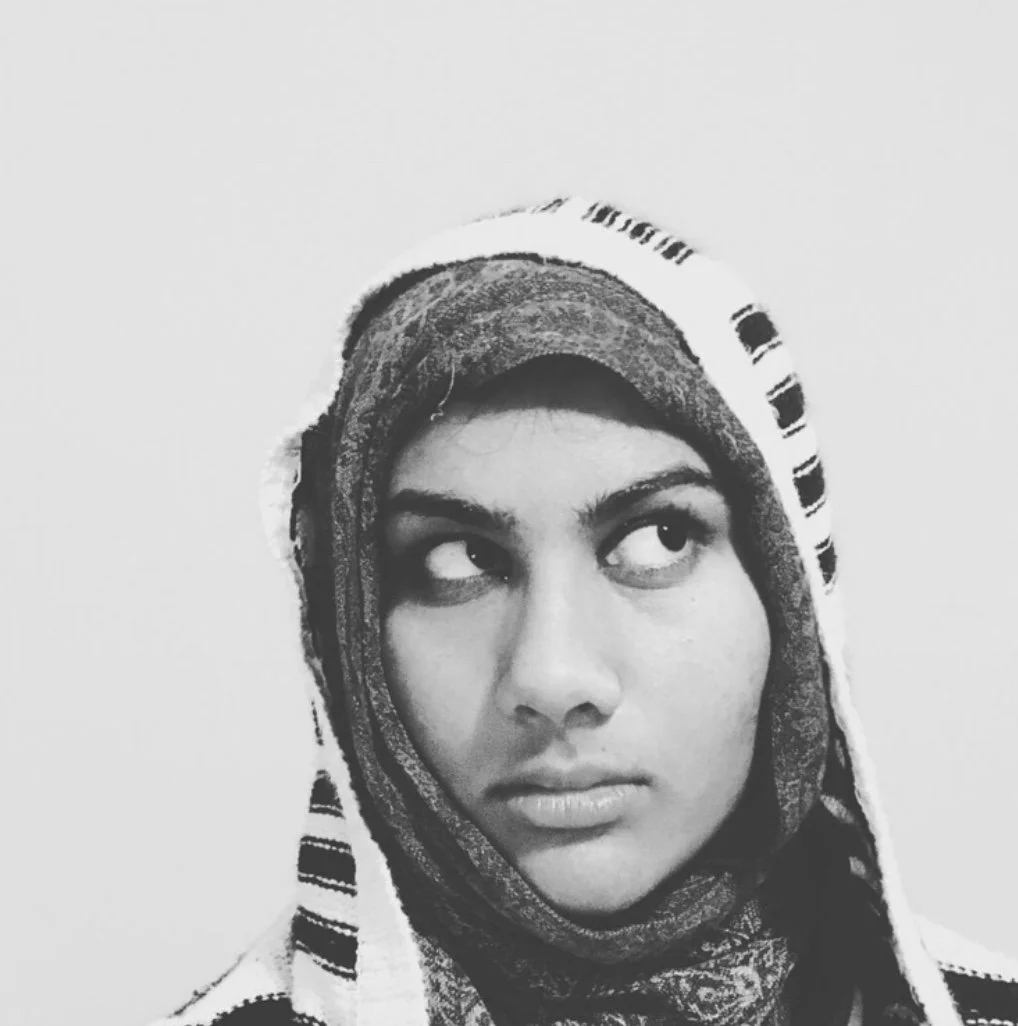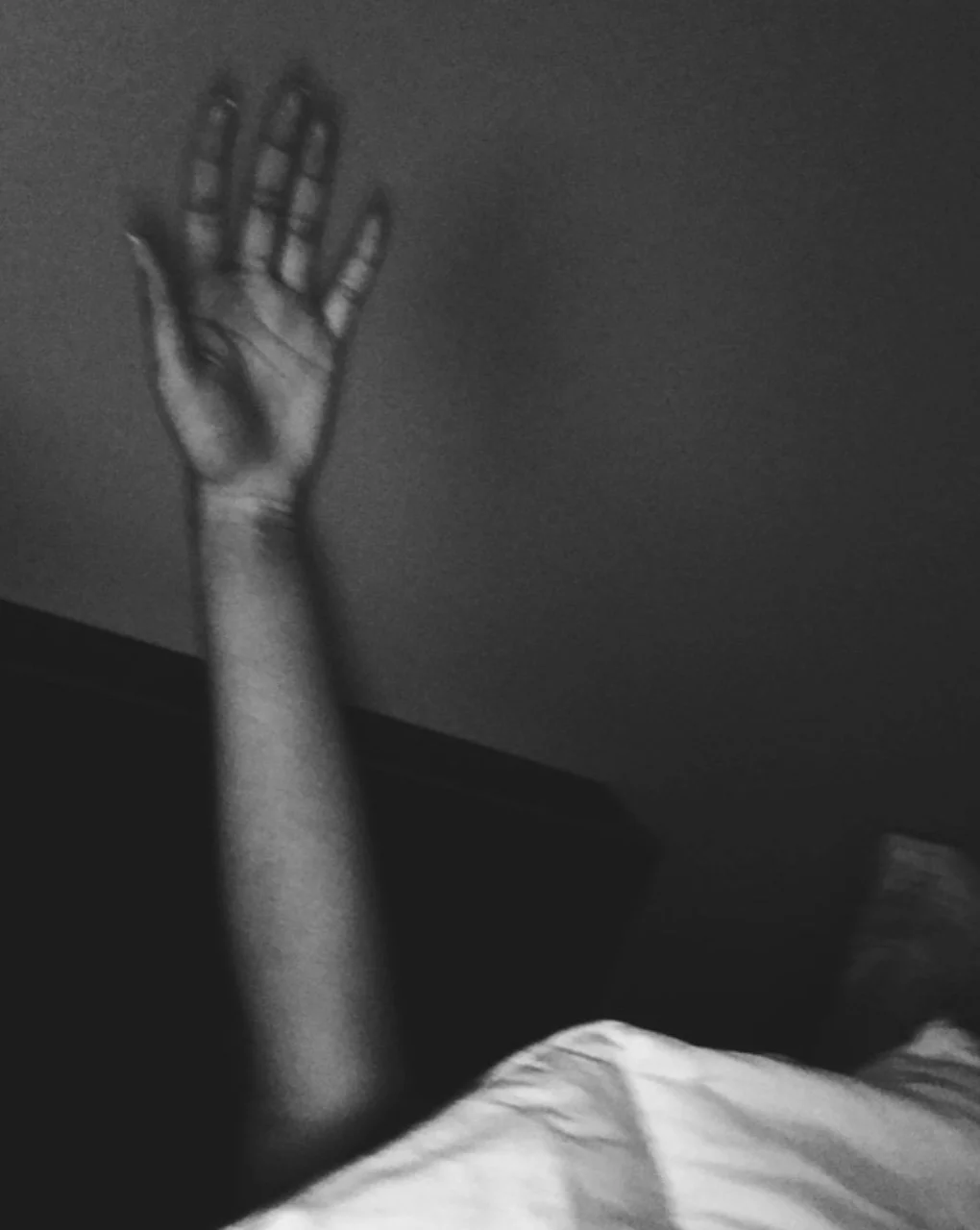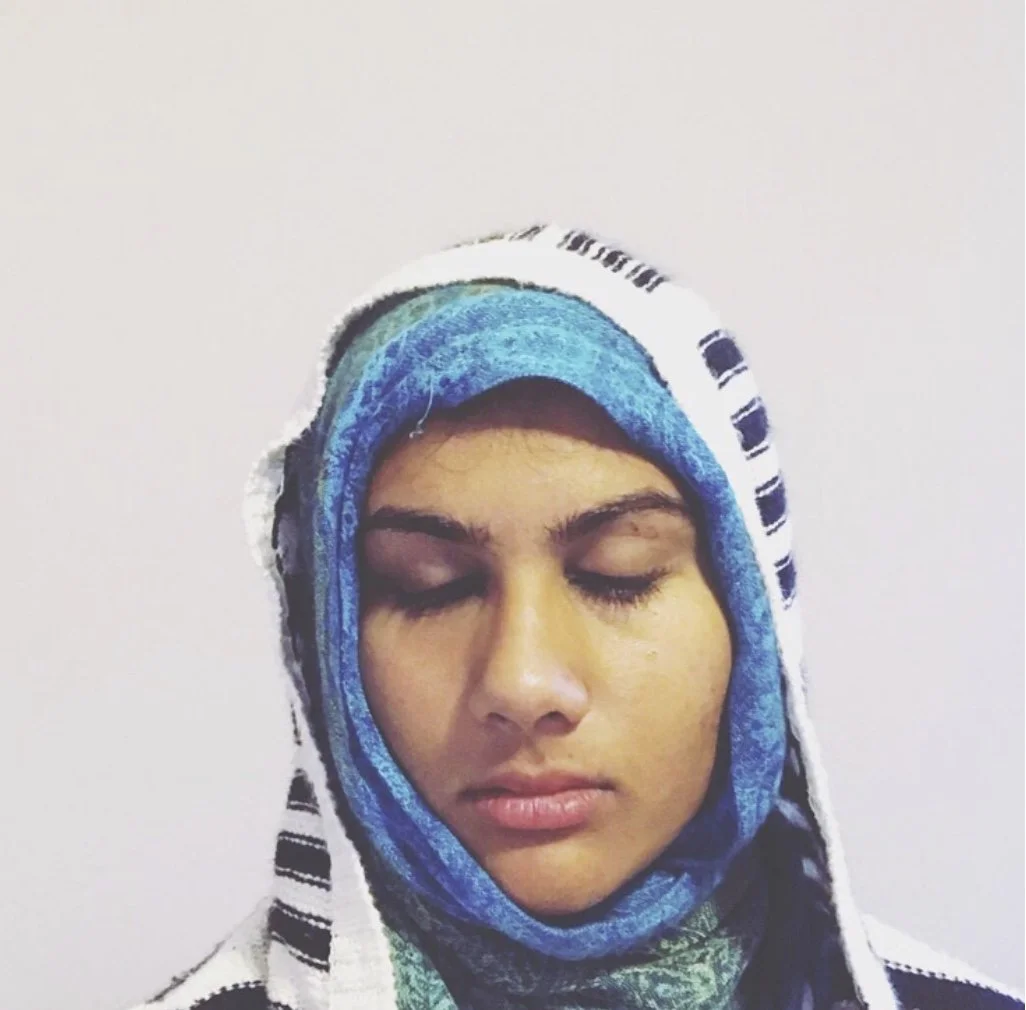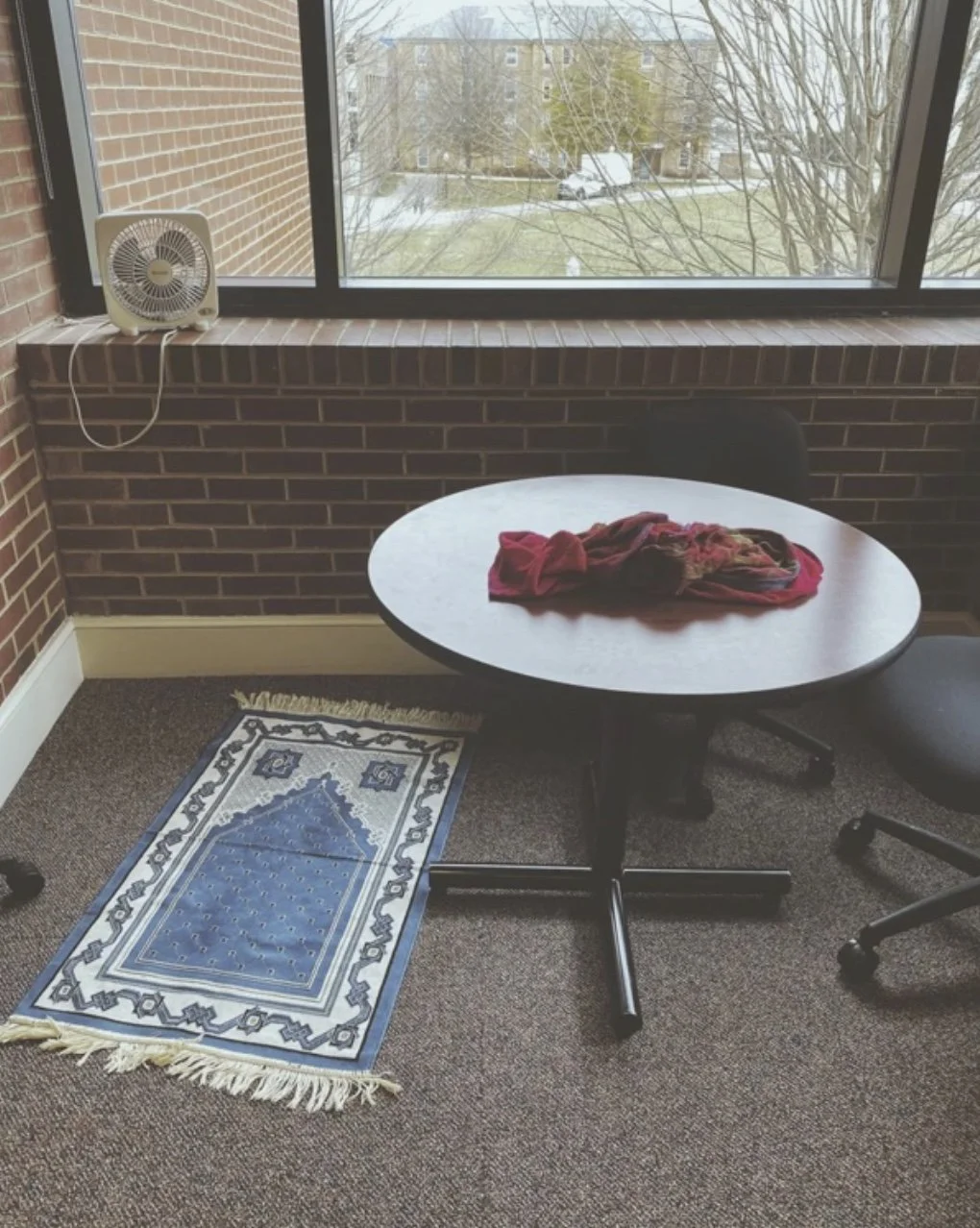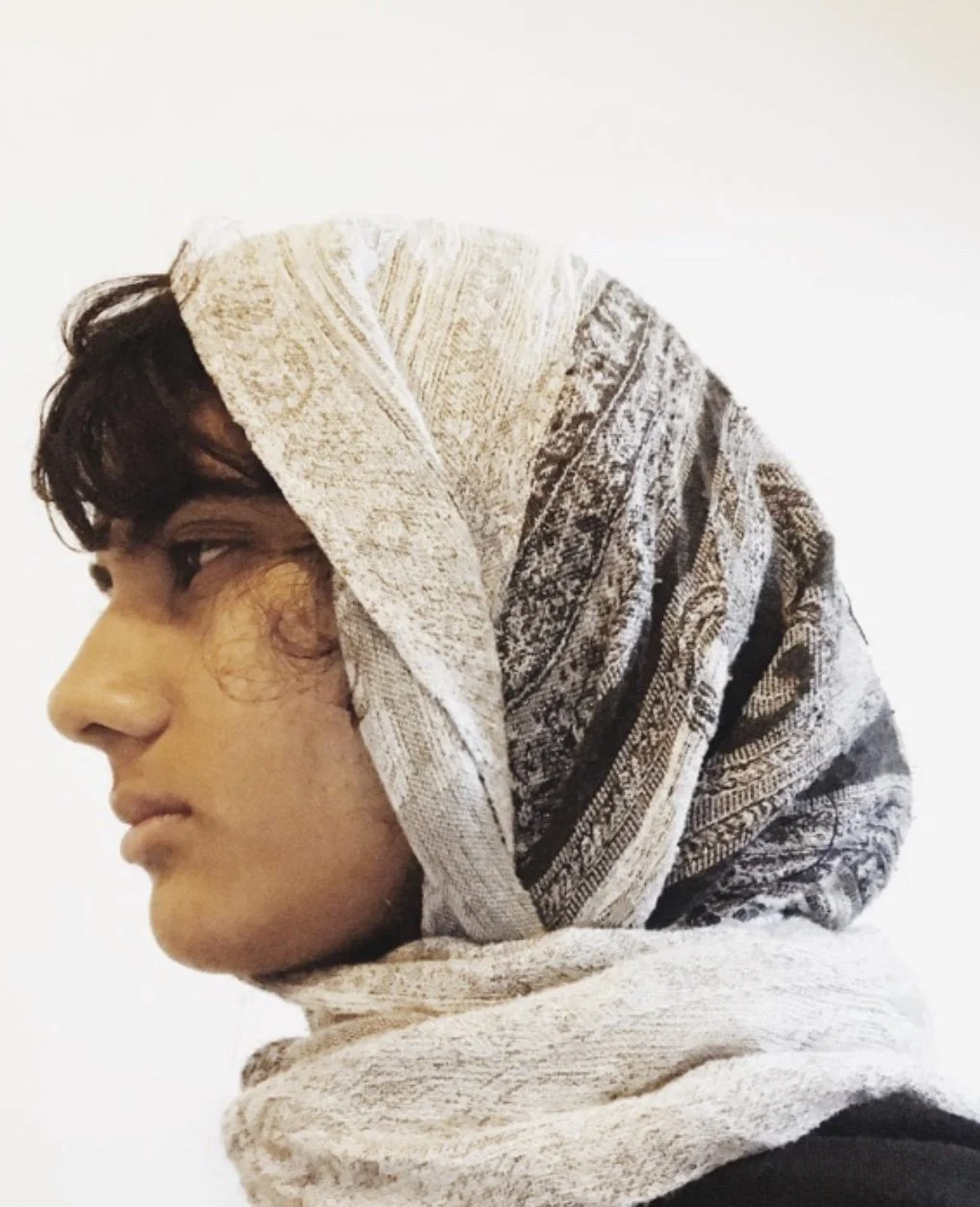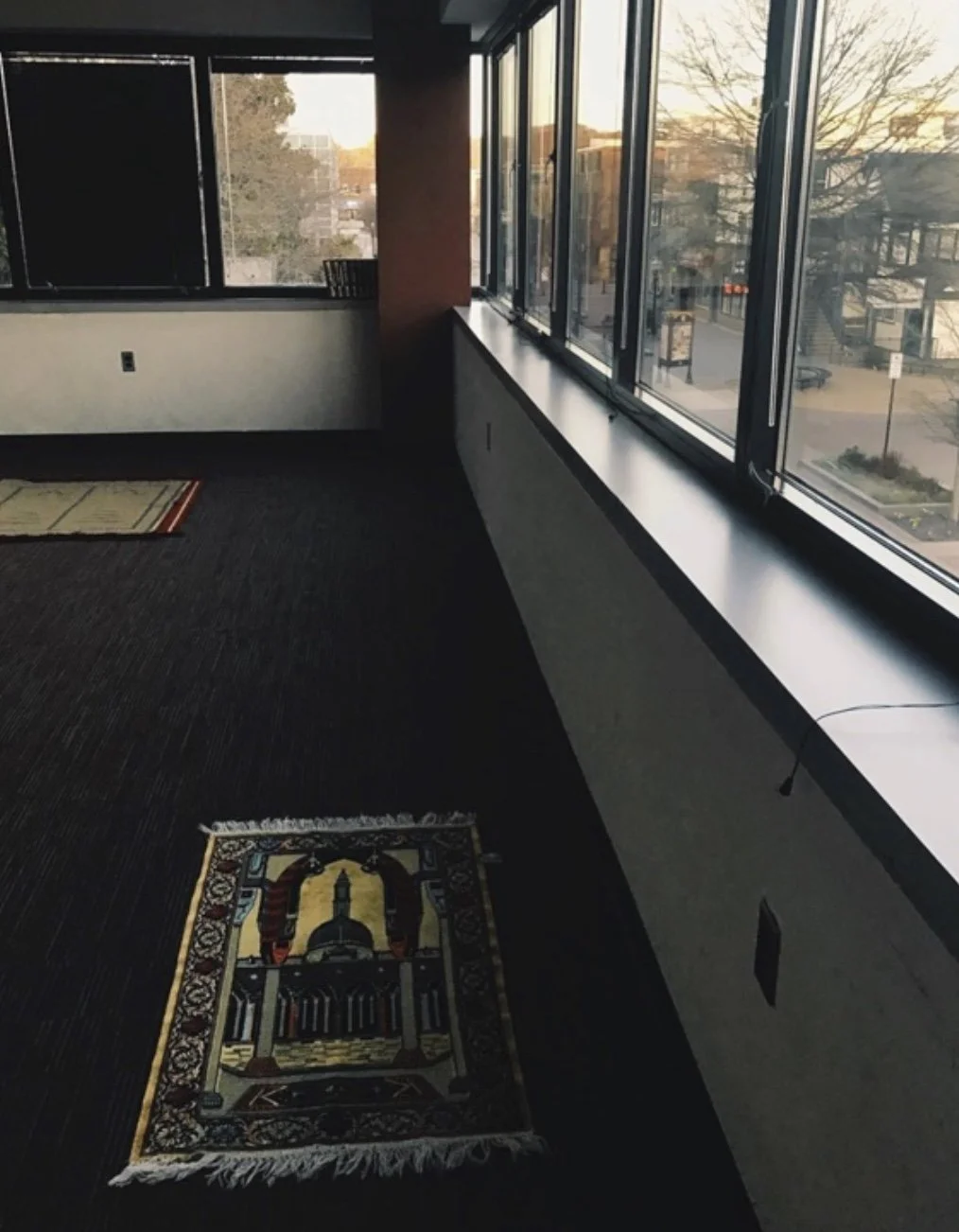God over Religion: I left Islam, but I also didn’t.
I have a confession:
I left Islam. For the past few years, I have been agnostic, and sometimes even atheist. Ever since leaving, I have been questioning things around God, experiencing conflicting feelings. Sometimes I long to be confidently Muslim again and consider reverting, and then later I become firm in my agnosticism or non-religious deism. I experience being existentially dreadful and then existentially hopeful.
I've been a pretty existentially aware person since I was a kid. One of the ways that manifested was me praying the five daily salah prayers (99.9% of the time praying Fajr, or the sunrise prayer, late), fasting during Ramadan, being modest in my dress choices, abstaining from dating, drugs and alcohol, etc. I was 23 when I officially left and didn't consider myself Muslim anymore.
I have OCD, and I really struggled with religion-related intrusive thoughts. The salah prayers, which are obligations meant to bring peace, calm and connection to God, became harder and harder for me over time. My stomach and chest would tighten up, anxiety of messing up flooding my system. A prayer that was supposed to take five to ten minutes turned into battles with myself often nearing to an hour.
These physical restrictions and inability to maintain prayer were manifestations of deeply rooted disappointment and doubtfulness towards God. The more aware I became of the perceived discrepancies between my values and my perceptions of God and Islam, the stronger these somatic restrictions were. I was conflicted and confused. Was the God that I wanted to believe in the kind of God that I was "supposed" to believe in?
I didn't leave Islam overnight. It was a gradual process, as I struggled more and more to hang on to my faith. There are multiple reasons that I could not submit to the idea of Islam being the one, true, perfect religion-- with the most pressing reason I left having to do with finding various instances of patriarchal subjugation of women. This will be my main focus in this article. I will try to be nuanced and be careful not to paint Muslims as a monolith-- and I will not be willfully ignorant of how Islam has been revolutionary in honoring women.
Now I'm 27 and while I don't perform the religious rituals as they don't carry the same significance anymore, many things have still stayed the same. I still don't drink or do drugs, and am still waiting to have sex until I'm married. By no means am I a morally and ethically perfect person and nor am I claiming to be, and I am aware that I have many flaws-- and at the same time, I am grateful for the social consciousness that Islam has instilled within me as I am very tuned into my moral and ethical compass. Being aware of how my actions affect others, practicing ethical consumerism, being grateful and humbled by my many privileges are by no doubt influenced by Muslim values.
Lately– currently-- I’ve been aware of how inclined I am to affirm God’s existence, and my need for God. I don’t know if it’s fleeting or if it’s something firm to bloom and grow as I continue watering it, but I’m looking into Islam again. With Ramadan, a month from the Islamic calendar where Muslims are encouraged to give extra effort to their faith and deepening their connection with God coming up, I want to move more intentionally in deepening my connection with God. It is also the month where Muslims who are healthy enough to are required to fast from dusk to dawn as they deepen their mindfulness of God. At the same time, I doubt that I will revert back to Islam fully, at least not in the traditional sense that I had growing up. Maybe I will take advantage of Ramadan in terms of seeking God through the Qur'an, but reject the deep validity put on Hadith reflecting God's supposed ideologies. I may accept much of Islam as valid in conceptualizing, connecting and submitting to God-- at the same time, I may not accept Islam as the one, true religion-- and certainly not as a flawless one. Or at the very least, I will not be accepting Islam as a flawlessly understood and flawlessly recorded one.
I also wonder-- what if there is something beyond Islam that is what God brought down to earth to communicate to human beings, but what we know of "Islam" is not truly the real "Islam"-- or God's pure way?
Here is what I mean:
From a Muslim viewpoint, "Islam", or submission to God, was taught to humans through prophets like Abraham, Moses, etc. And then God's pure way of submission to Them was then altered by human beings, contaminating God's way with human errors. Pure "Islam" then turned into what is modern day Judaism and modern day Christianity. And the "Islam" that was revealed to Muhummad, the final prophet and messenger of God, is believed to be the non-contaminated way of God, with the Qur'an being the final holy book revealed from God Themself. Unlike the Torah and the Bible, which again Muslims believe to be altered by people, most Muslims believe that the Qur'an was not altered by human hands.
My question is, what if that's not true? What if just like what are modern day Judaism and modern day Christianity are partially from God with human contributions and alterations, so is Islam? Even if God did appoint Muhummad as the final messenger and the Qur'an as the last book to be revealed, what if even then-- God didn't further ensure perfect preservation of Their word? I know that this contradicts what the Qur'an says. But didn't the Torah and Bible assert the same claim of being fully God's word, unchanged?
Sure, there are arguments for the Qur'an being special and different-- and from both my familiarity and personal biases of regarding the Qur'an from my time being a confident Muslim, and in my personal analysis of it from an agnostic lens, I definitely appreciate a lot of the revolutionary ideas and social impacts from it. At the same time, I'm hesitant to believe that it is of Divine origin in its entirety.
What if religions are a form of "fitna" from God to test our character and humanity?
In Islam, there is the concept of "fitna." Fitna is a term that refers to trials and temptations that Muslims face in relation to their submission to God. For example, one's children can be considered fitna. Raising children can test a parent's character and can provide an opportunity for growth where one raises their children God-consciously, practicing patience and exercising kindness and humility. On the contrary, a parent may exhibit character flaws away from God consciousness, being neglectful and abusive towards their children.
Notoriously, women are also considered to be "fitna" for men. Often objectified in spaces of religious discourse, most often dominated by men thanks to the pervasiveness of patriarchal cultures demanding male leadership and devaluing the leadership of women, women's existences are hyper-sexualized. Women are reduced to primarily being wives and mothers, to be at the service of men. In both implicit and explicit ways, women are portrayed as existing for men, where they are expected to reflect their worship of God through their submission to men. And because there is such a focus on how women's existence affects men, instead of acknowledging women's personhood and existence separate from men where they are equal believers and equally whole human beings, men are still centered above women. Of course, the problem isn't about how women affect men-- the problem is men placing responsibility on women for their own perverted objectifications and dehumanizations of women, assuming that they have dominion over them.
If women are "fitna" for men-- it is not because women are evilly tempting for simply existing and being authentic in their self expression. Women are fitna for men because of how it reflects a man's character in how he perceives and accordingly treats women. Women aren't fitna because they are women, women are fitna because men are afforded privileges of power and autonomy that women are not. Will men treat women with dignity and respect as a human being, or will they dehumanize and abuse women, silencing their voices and caging their souls?
Your family is then, fitna. Your spouse, regardless of gender, is fitna. Your marriage, all the good you have in your life, all the trials you have in your life, are fitna. Yet, women being fitna carries an inherent sexualization and thus objectification.
The existence of patriarchy and a man's responsibility over his own character makes women "fitna". I'm sick of religious and cultural discourse being used to refer to women as "fitna" where the male gaze is centered and women are inevitably objectified (in case you couldn't tell).
My egalitarianism, of which inevitably includes feminism, is a significant factor in my deconstruction of Islam, and a big reason for me leaving. At the same time, I acknowledge that feminism is also present in Islam. There are many instances of equity and gender equality, despite the disparities I have noticed. I will get more into detail on this further in this article.
Going back to my mentioning of fitna-- I wonder if the various religions throughout the world may be a fitna from God to test humanity. Did God intend for the differences in belief systems revealed by Them, and the human contaminations of these revelations, to occur to test our seeking of God over religion? Or to test our sincerity and genuineness in our intentions? Did God leave ambiguity in certain places where moral and ethical consciousnesses are concerned to see how we treat others in our consciousness of Them, choosing Them over our egos and selfish biases?
Why I Initially Didn't Want to Talk About Leaving Islam & Why I'm Talking About it Now
I wanted to refrain from openly talking about leaving Islam back in 2021, already being on the verge of it at the end of 2020. I especially wanted to refrain from talking about it online, when there is already a lot of Islamophobia in the world– especially in places of Western media. I did not want to contribute to that. Despite atrocities happening over the world throughout centuries, committed by people associating themselves to various religions and ideologies, Islam and Muslims get notoriously bad rep thanks to mainstream media fueling bigotry both on right-wing and left-wing political spectrums on bases of racism and white supremacy. White Christian nationalism is normalized, US American terrorism being deemed as justifiable under the guise of moral sophistication, ignoring the role they play in birthing extremism in the parts of the world they destroy and pillage.
Another reason I was hesitant to share the evolution of my religious and spiritual views was because I’ve seen the vitriol former Muslims experience from practicing Muslims for expressing leaving the religion; not to mention the toxicity and verbal abuse that Muslims perpetuate against other Muslims online. I didn’t want to attract this kind of attention and negativity for my own self-preservation and peace. I know that expressing my personal deconstruction of Islam, or at least of traditional and popular interpretations of Islam, could make that negative attention possible even if I express my analyses respectfully and with civility. With that being said, I want to make the disclaimer that the toxic and abusive behavior doesn’t paint the Muslim community, or the ummah, as a whole– and this kind of behavior certainly doesn’t embody Islam as a whole. This behavior is not exclusive within Muslim communities in particular. You see judgment and attempts at subjugation and self expression from members of organized religious groups against other fellow members in various religious communities.
Despite my fears and hesitations, I think it is important to go into detail about my experience because I know that I am not alone in the explorations and existentialism when it comes to personal religious, cultural and spiritual identities. I also find it valuable to be able to hold nuanced discussions about Islam and interpretations of it. This could potentially assist in combating Islamophobia, providing opportunities to clear widely held misconceptions in the Western world of Islam and Muslims.
Regarding again relating to people with similar struggles as mine, I know how hard and lonely it can be when you go through so much of your life rooted in an existential identity as significant as a religious one that affects most if not nearly if not all of your world views– only to come crashing down from the security of it when you are forced to confront whether or not you actually believe in it anymore. Because even though you’ve pushed down your questions, even though you’ve been hanging on to your faith and have been front-loading all of the evidence that proved to you your religion to be true, you can’t run any longer. Despite your desperation to hold onto your faith, to believe in an afterlife where you will see your loved ones again, to know that an all-loving, all-just, egalitarian God has got you, you simply can’t. Not without finding the answers that you need. The only problem is, no matter how much research you do, no matter the conservative and progressive explanations you search for, you cannot find something that makes sense.
When you are going through this existential crisis alone, it really does suck. People often assume that you leave religion because you haven’t done enough research when you’ve gone into rabbit holes to make things make sense. They can’t seem to get that it’s not that you haven’t done research or that you haven’t tried to understand. It’s that you did out of your sincerity try to get clarity and peace and connection to God, and that well-intentioned research is what is causing you to spiral. Or they assume that you just wanted to take the easy way out. They don’t understand your painful confusion of how your moral and ethical compass can be at odds with religion-- or at least, at odds with the the popular interpretations they demand you must accept in order to be a “real” Muslim– or Christian, or Jew, or Hindu, etc.
They assume that you have selfish worldly intentions, despite your commitment to embodying the values of human dignity beyond your individual self, towards people who are also different from you. Despite you being guided by the moral and ethical compass that religion itself inspired within you– perhaps by God Themself.
They don’t get that you don’t just want to let go of all the rules and reject God in favor of external validation so that you can "fit in." They don’t see that you still decide not to drink alcohol because you appreciate the benefits of that, or that you still decide to save sex for marriage because you agree that deep emotional connection and commitment while engaging in it is a way of honoring yourself and your values (not discrediting people who value sex differently in authenticity to themselves), or that you crave to find the peace in submitting to a higher source that everybody except for you seems to find.
They don’t get that maybe, instead of letting other people, especially patriarchal men and patriarchal interpretations of scripture and tradition telling you about your relationship to God and who you are "supposed" to be, being authorities on God, you should seek out God before you seek out religion.
They don’t get how hard and lonely it can be, and how genuine your intentions are. The question is, have you truly given yourself permission to shut out their voices and connect to your own? Have you truly surrendered to let God speak to you, personally, igniting your soul for you to be freed from the evils of imperfect humanity which inevitably result in oppressive systems like patriarchy? Have you given yourself grace for not knowing everything? Have you given yourself permission to trust yourself in your intentions?
Don't let Patriarchal Men Gatekeep God from You
This especially goes for you if you’re a woman. We’re so used to being told to let men be the authorities– even when it comes to women. We’re told to just accept that men will be experts, and that we will never be– never mind the fact that despite silencing our voices, deeming our input and intellect as invalid, men continue to steal our ideas and pass them off as their own. They continue to gaslight us out of our intellectual, creative, spiritual, physical potentials and other capabilities. They will even rewrite history to serve their patriarchal agendas– and given their patriarchal biases, will even speak on women’s experiences and issues as experts, assuming that they are experts on women’s individual and collective relationships to God. They will act like they’re experts on the "nature of women," reducing us to a monolith that erases our multi-facetedness, describing our existence as being for the purpose of serving men in various ways and especially sexually.
But as women, as any individual person– especially of marginalized groups– we cannot let men, or anyone for that matter, gate-keep God from us. And if religion is being used to gate-keep a version of an egalitarian, and therefore feminist God who empowers women to tap into their souls and therefore connect to their ultimate personhood in connection to Them, then maybe it’s not God that these men are wanting women to submit to. Maybe it’s men that they want women to center and submit to, contaminating religion to represent submission to men as an act of worship to God. And what happens when that happens? Shirk. As feminist scholar Amina Wadud said, patriarchy is associating men to God. And if you aren’t familiar with Islam, shirk is a huge sin where you associate something or someone to God for worship.
Isn’t it interesting that much of religious scholarship, unsurprisingly dominated by men in patriarchally designed societies, paint women as secondary to men in the roles they interpret and ascribe for us, despite scripture contradicting this notion? In the Qur’an at least, men and women are explicitly recognized as being equal in existence in God’s perception, and there are mentions of women who stood their ground to embody righteous values in submission to God instead of submitting to men. For example, the Pharaoh’s wife was lauded for submitting to God instead of submitting to her arrogant, oppressive husband. And the Queen of Sheba is shown appreciation in the Qur’an for her excellent leadership. She was a single woman and queen when she was mentioned, never being admonished in the holy book for her autonomy and personhood where her identity was not contingent on a man and how well she could submit to him. This is interesting to note, especially considering how many modern patriarchal Muslim men are pressed about Muslim women being independent and self sufficient, and not needing to rely on a man. While I can acknowledge positive, feminist parts of Islam affirming women’s self determination, I’m not ignorant to the flaws or parts of the Quran and popular Islamic interpretations at the same time.
I'm so Grateful for the Ways in which Islam Continues to Influence Me Positively
Although I’ve been misguided out of alignment to my authenticity in search of it a few times in trying to find meaning after not considering myself Muslim anymore, I haven’t fully let go of Muslim practices. When I mention being “misguided”, I am referring to roughly a couple of years after leaving Islam in 2021 where I adopted a lot of spiritual Western new age beliefs promoting values like hyper-individualism and selfishness in the name of self development. Not to mention, these Western new age ideologies were stolen from various indigenous cultures and non-Western belief systems, contaminated with colonialism, capitalism and white supremacy.
In search of myself and unsure of God, and struggling to believe in a God who was aligned with my values and truly rooting for me, I grasped onto these concepts that seemed to be making other people happy and successful. Then again, around 2022 and 2023, I started to become aware of the moral and ethical misalignments within these spiritual communities. And the more I became aware of them, the more I went grasping back for something else that had moral and ethical consideration, humanity, at its core. Time and time again, I keep coming back to my spiritual familiarity with Islam, from which I derived much of my own understanding of God aligned with my values. This was in addition to my learnings and reflections from other religious and spiritual traditions as well as from my own critical thinking and individual seeking of God, reflecting on my perceptions of right and wrong.
Sure, I don’t do the five daily salah prayers like I used to, but I still make dua (informal prayer where you converse with God directly) to God, asking Them for protection over my loved ones for example. I still say "bismillah" (in the name of God) before eating or doing something important to me. I still play my favorite recorded recitation of Ayat-ul-Kursi (the verse of the Throne) when I need comfort and am seeking God's protection.
There are so many beloved traditions from Islam that I miss, and I have so much appreciation for the value that Islam has brought me. One of the things that I miss the most is being able to unite with other Muslims over shared beliefs. I miss the community aspect of it and sense of belonging it brought. I definitely miss having the certainty of an afterlife and Heaven existing.
I am so grateful to be habitually abstinent from alcohol, and I am so grateful for the ways in which I value sex as sacred in authenticity to myself and in honor of my mind, body and soul. I’m so grateful for my continued character development in which I care about being a good person when it comes to how I treat other people and other sentient beings, as well as in being conscious of balancing my confidence with humility.
I have moral and ethical questions about Islam while being morally and ethically inspired by Islam.
Being Real with Yourself Instead of Forcing Belief Can Guide You to Truth
Another reason I believe it’s important for me to share my spiritual journey from Islam to something else, and potentially back to Islam again, is because I believe that by resonating with others, maybe I’ll help guide them back to God. And not to a conception of God that supports oppressive ideologies like patriarchy, or is nonchalant about inequality best, but one that truly seeks to free the souls that submit to Them. A connection to God that is individually discovered by the soul-- genuine, intentional, confident yet humble, self aware and socially aware in seeking God rather than strictly through religious dogma contaminated by human imperfections. Or maybe it will guide them to not believing in God, at least not through the lenses of religion, and being better off that way-- becoming a better human being.
Maybe a current Muslim or person of another faith will give themselves permission to leave organized religion, or maybe a Muslim or other religious person will deepen their faith in their current religious beliefs, finding deeper confidence in their identity and integrity to their values.
Submission to God is Supposed to Free Us, not Cage Us
When we feel overly restricted by rules and restrictions and submission, we start conflating our level of adherence to the rules with piety. We lose sight of the point of these rules in the first place, prioritizing religion and other people's expectations through them over God instead of prioritizing God over religion. We forget that submitting to God means freeing ourselves– more particularly it means freeing our souls. We forget that submitting to God is a key to honoring ourselves, not betraying ourselves. Unfortunately, it's so commonplace for people to measure the level of their commitment and submission to God by the extents to which they are ashamed of themselves.
One of my definitions of “soul” is the ultimate potentials of who we are. When we end up submitting to rules and order that put us beneath or above other people, including when we submit to patriarchal rules and order, we end up restricting our souls and distancing ourselves from self awareness and social consciousness consisting of human dignity for all. We end up restricting our souls, gatekeeping ourselves from ourselves-- and ultimately from the rest of the world. And because our souls– our ultimate potentials– are derived from God, through rejecting our souls and caging them in adherence to human interpreted– most of the time, specifically man interpreted– rules, we end up distancing ourselves from God. We start to perceive submission to God as the extent to which we can reject ourselves to fit into what we are “supposed” to be so that it can be convenient for other people.
Doesn’t this sound familiar?
Submitting to God means that we free ourselves from superficial rules and expectations from society. We learn to trust ourselves more and give credence to humanity over systems of privilege and oppression that require suppression of our souls and human dignity. We realize that a part of our submission to God entails indulging in the gifts our authentic self expression, including through creativity, intellectualism and connection with other people where we unleash more of our light instead of dimming it.
When you look at societies throughout history and analyze systems of oppression, you see that taking away people’s powerlessness starts at an individual level. When the self is taught to abandon their own connection to themselves, rejecting herself as the authority on her own experiences and identity, and instead letting other people dictate her nature for her, she becomes accustomed to gatekeeping herself from herself. When you see sexism, you see women being shunned by patriarchal men and even patriarchal women, telling her that she’s not “feminine” enough for possessing her intellect and self-sufficiency. You see men being shunned by patriarchal men and patriarchal women for being emotionally intelligent and emotionally mature, being told that he’s not “masculine” enough. These boxes are designed to distance people from their humanity and from the multifacetedness of their souls. This shame is meant to control people and maintain patriarchal hierarchies where men are placed at the top, letting men's dehumanization of fellow men and of women and anyone else who isn't a cis, straight man be a tool for domination and power, feeding their egos and selfish worldly desires.
Religion is not saved from being a tool for domination when in the hands of ignorant people. And as imperfect beings on the virtue of being human, none of us are morally or ethically pure. But in connecting to God, seeking Them with sincerity, we can become increasingly moral and ethical with how we live.
Religion versus Culture
Yes, I know that there is nuance when it comes to separating religion from culture in particular; when it comes to discourse around Islam, including within Muslim communities, many progressive and ethically-conscious Muslims are steadfast in calling out cultural contaminations of God’s rules and order. When it comes to questions of oppressive systems being present and upheld by Muslims before, during and after Islam’s revelation, people are quick to point out that oppressive practices are from “culture” and not “religion” and that people need to stop conflating the two.
For example, many women from desi (South Asian cultures including Bangladeshi, Indian and Pakistani ones) backgrounds like myself experience gender-based discrimination from the nuclear families they grow up in and from their families-in-law when they get married to men. A popular example of such discrimination is when girls and women are overly sheltered by their parents, who discourage them from having friends outside of their cultural communities and from forming a sense of identity outside of their families. While many of these girls and women experience overbearing, suffocating rules and restrictions from forming a sense of self and simultaneously being expected to act as caretakers for their parents and younger siblings (hello, parentification), boys and men on the other hand are not as commonly given the same extent of regulations. There is a double standard where boys and men are not as harshly judged and punished, if judged and punished at all, for defying religious and cultural norms such as drinking alcohol, dating and having premarital sex whereas girls and women are shamed and perceived as tainted individuals for doing the same.
Regarding marriage and in-laws, there are often cultural expectations where women are, in likeness to their childhoods and adolescent nuclear family dynamics, expected to continue shrinking themselves to serve other people. They are expected to refrain from standing up for themselves so that they are not “disrespectful” to their parents-in-law, despite the latter having free passes to insulting and dehumanizing treatment of the former. A wife’s identity then unsurprisingly gets reduced to her being a wife and a mother, and a “good girl” daughter in law who is continuously lauded for sacrificing herself, being revered for creating an identity for how she associates to others rather than for who she is. She gains status for how well she seems to gain the approval of her in-laws-- but how does that matter when her misery is the trade off?
I have many reasons for having rejected Islam as a perfect religion and for becoming agnostic, not identifying as Muslim anymore when I initially left; however even then when leaving was fresh, and now when I’m at a place of considering becoming Muslim again, I saw then and I see now that these particular expectations are truly cultural. Throughout historical documentations of Islam, including the Qur’an and Hadith (much of which I truly believe to be contaminated by patriarchal men, but not all), it is obvious that women are commanded to decenter men and to recenter God as I had detailed earlier. Islam has a rich history of women being scholars and lifelong learners and teachers, despite the rigidly patriarchal society in which it was revealed. The rich history of women’s scholarship (may I also mention that the first university in the world was founded by a Muslim woman?) and commitment to learning as a religious act certainly cannot be erased by modern patriarchal men and incels, or by the modern pick-me women, who assert that women shouldn’t be getting an education or be pursuing leadership.
It’s also important to note that men are tasked with great deals of responsibility when it comes to taking care of the women in their lives, especially given their privilege. I can appreciate that in such a patriarchal system of the culture where Islam was revealed, the Qur’an seems to exude a framework of equity, requiring that husbands provide for their wives from their own earnings, but not requiring wives to contribute to their husbands their own wealth– though they are welcomed to do so if they wish. The equity gap, including the equal pay gap, still permeates into the modern day, including into the Western world that is seemingly progressive when it comes to gender equality. And to be fair, in many ways it is– but very often lacking an equitable lens. I do appreciate that Islam was much more progressive when it came to recognizing women's rights ahead of many if not most Western civilizations.
While I admire these aspects of Islam, and much of my moral and ethical compass has been influenced by it, that doesn’t erase the qualms that I have around gender equality and ethics in the faith– or at the very least, in the interpretations of it.
It can be tempting to explain patriarchal interpretations of religion and patriarchal reasonings to justify oppression in association to religion as cultural, and not religious. But how confidently can be sure of this in every case?
How can we guarantee that men being more worthy human beings than women is contradicted by the verse in the Qur'an that explicitly mentions that men and women are equal to God in Islam, when no female prophets are recognized, and when undeniably sexist Hadith exist? Again, it is highly possible that these sexist Hadith aren't accurate since they contradict the Qur'an. However, even when looking at the Qur'an and comparing different parts of it to each other to find a consistent message about gender-based equality, how do we grapple the topic of power dynamics in marriage, sexuality and slavery?
Slavery in Islam
Many of my doubts have to do with the allowing of slavery, including sexual slavery. And please note, that despite Western lenses and despite bigoted lenses trying to other Islam as something uniquely barbaric compared to Judaism and Christianity, slavery was a part of these other two major Abrahamic religions as well. Slavery was not introduced by Islam; it was already an immoral practice prior to Islam being introduced in the region it was revealed in. And I want to make it clear that there is no justification for slavery-- neither for it's introduction and continuation-- and that through a moral and ethical lens, it is objectively wrong. Islam did highly encourage the freeing of slaves and treating them well (and how well could one treat someone they commodify?); however, it still bothers me that it wasn’t explicitly condemned– at least to the best of my understanding. And it troubles me that men were permitted to have sexual relationships with female slaves, in addition to their wives– in addition to people being allowed to have slaves in the first place. It’s hard not to picture consent as being dubious if considered at all, especially in a master-slave relationship, and even more so given that the importance of consent is still being challenged by patriarchal and misogynistic ideologies today even in seemingly (I want to emphasize the key word , *seemingly*) free and liberal societies like the United States.
It makes me wonder– based on Islamic principles of love, respect and dignity for everyone, sourced from the Qur’an which is believed by Muslims to be the word of God Themself– was the purpose of categorizing sexual relationships to wives and female slaves to eliminate the distinction in status and rights to human dignity and autonomy between these two groups of women in society? Perhaps God, if the Qur’an describing these parts regarding slavery is truly from God, was trying to affirm that despite societal status, “free” women and “slave” women were equal in God’s eyes, and therefore despite being oppressed in a patriarchal society, still had equal rights to consensual sex under Divine law?
Of course, that still does not change the fact that at the end of the day, slave women could not have had the same extent of freedom as “free” women. Even if “free” women were largely oppressed, which they definitely were significantly more prior to the revelation of Islam in society, slave women must have had degrees more of restriction. Wouldn't the Qur'an make explicit note of this human equality regardless of class, in addition to gender, if it was truly from God?
Wouldn’t Divine law allowing Muslim men to have sexual relationships with women in a master-slave relationship, enable the lack of consent and lack of autonomy for enslaved women– or more correctly– for the women that men enslaved? Ultimately, this would reaffirm the idea that men are entitled to ownership over women.
It is interesting for me to grapple with this confusion, given that as I mentioned earlier, much of my moral and ethical compass comes from having been a religious Muslim. Or at the very least, is heavily influenced by it. My unrest towards injustice, including gender-based injustice which is my main focus problem on this article, definitely comes from my desire as a woman to feel existentially valued by God individually, and from my desire as a human for other women and girls to be valued. I want people to ve valued regardless of gender, period. I want to reject the idea that by being a woman, someone is somehow less than and flawed-- this sexist idea is embedded heavily in many popular communications of religious ideologies in both implicit and explicit ways. This desire for validation for Divinely decreed value and dignity for all human beings regardless of identity comes from Islam in the first place-- where values of compassion and kindness are undeniable and justice is promised. At the same time, my seeking of Islam for my values comes from my desire for God at the root, the source of everything good, holy and righteous-- beyond my religious affiliation.
I reiterate the saying, “God over religion” as I continue to seek the truth, and I encourage this consideration for those who are also seeking the truth.
How much of the Qur'an is truly from God, and how accurate really are the recorded hadith?
One of my theories is that perhaps much of the Qur’an is from God– but not all. I know that most Muslims believe that the Qur’an is 100% God’s word in its original Arabic preservation, untouched, carefully preserved through oral and written transmission. There is the argument that because several people had it memorized at the same time, it must have been well preserved– actually perfectly preserved– long after the death of the prophet Muhummad. Even if translations from the Arabic inevitably result in things being lost in understanding of God's word, the Arabic is supposedly directly from God's diction.
There is also a similar mentality used towards Hadith, especially for Sahih Hadith, where it’s accepted by the large majority of Muslims that these were preserved perfectly by people. If you aren’t familiar with hadith, hadith refers to the sayings of the Prophet Muhummad as they pertained to Islam and how Muslims should live. However, given that hadith is not believed to be directly God's word like the Qur'an is, it's not given the assurance of 100% Divinely-protected validity that the Qur'an is; though I feel like many Muslims often give the hadith more credence than they actually should. Many Muslims derive their confidence in perfect preservation of the Hadith on the basis that Sahih Bukhari, a collection of hadith compiled by a man named al-Bukhari whom the collection was named after, carefully wrote down the Prophet’s sayings (after his death, too, mind you) and that people after him conscientiously preserved what he wrote down; therefore, the explanation is that none of these Hadith could have been changed by others because of how carefully the original writings were preserved as they were passed down.
To be blunt, respectfully, I find this explanation to be laughable. How many times have we in the modern world played telephone and witnessed how easily, how inevitably, the simplest things can be misconstrued by messengers? And what about when we observe the spread of gossip and rumors?
Sure, it might be true that the original Hadith that were written down were carefully preserved as they were passed down from al-Bukhari to others. But the elephant in the room here is this:
How do we guarantee that the Hadith written down by al-Bukhari himself were accurate sayings of the prophet Muhummad in the first place? How do we especially with confidence accept these written down documentations of the last Muslim prophet’s sayings when patriarchy was still rampant after his death, and men in power with political and sexist agendas still dominated conversations and sought to diminish the input and voices of women and others they wished to rule over?
Why do people put so much trust in the men of that time to begin with? We already see how little people in power, including modern men in power, can or at least should be trusted with people-- especially with vulnerable people.
Not to mention, Aisha, one of the wives of Muhummad had also been a significant contributor to collections of hadith recorded by al-Bukhari. And yes, she was given credit and respect for that– to an extent. At the same time, there are historical sources that mention Aisha dispelling misogynist hadiths being narrated by misogynist male companions of the prophet, her rejecting that he never said certain things, only for them to be written down as authentic narrations anyway. (I read an amazing article a few years ago going into detail about this, and am having trouble finding it. Once I do, I will update this article with reference to it.)
The truth is, we don’t have a definite way of knowing whether the prophet truly said a lot of the notoriously misogynist and other problematic hadith that are written recorded as “authentic”. Many Muslims will use their faith in a just, egalitarian God to conclude that these hadith were in fact authentic but taken out of context, and others will full on reject these hadith.
Sure, the Hadith were recorded in ways that were dominated by male narratives and interpretations, even with women like Aisha playing a significant role in narrations and in Islamic scholarship in general. But what about the aforementioned contexts (eg, slavery) lacking in the Qur’an where equality and autonomy for women are dubious at times? Another example is how a woman's testimony is likened to half of a man's. Even with external context, how could a "clear" message from God be one that requires external context in the first place? How could a simultaneously omniscient and just God leave a holy book with enough room for interpretation so that it could be construed to justify patriarchal norms and men’s domination of women in the first place, especially knowing the rampant possibilities for it not just back over a thousand years ago in a sexist society, but also in the modern day? Especially when there are rampant consequences girls and women suffer from as men justify their abuse on religious grounds?
And I've only noted a few of many examples I have of sexism and double standards in the Qur'an and hadith. This already lengthy blog post would be even longer if I listed all of them here.
My problem here is that if God, or at least a just, egalitarian God who doesn’t put men above women in value intended for gender equality and equity, then why is there so much room for interpretation and confusion? Especially when that room and ambiguity have enabled, albeit influenced by culture, people to justify making divorce hard for women, marital coercion by men over women when it comes to sex based on multiple hadith, the infantilization of and a sense of ownership over women where they are supposed to "obey" their husbands based on multiple hadith and Qur'an verses that leave room for ambiguous interpretation? And how can we truly say these are cultural inspirations of sexism if the hadith are supposed to be accepted as life guidelines in alignment to religious practice? And how do we separate authentic hadith from inauthentic hadith, and how do we find a clear and consistent message of equality and human dignity, when we cannot interpret the Qur'an without context from them and other historical recordings of the last prophet's life?
Final Thoughts
While a lot of things are explicitly mentioned in terms of honor and justice for everyone regardless of gender and other identities, there isn’t a clear and consistent enough message of equality, dignity, autonomy and right to self determination when it comes to women’s rights for me to believe the Qur'an and Islam as understood as a human religion to be from God unanimously.
As I’ve already mentioned multiple times throughout this article, humans are flawed– and that includes myself. And therefore, human interpretations may be flawed– and my own interpretations are not exempt from that.
And also going back to an earlier point-- maybe that ambiguity was left by God to test us. Maybe the Qur'an, Hadith, Bible, Torah, etc. a type of 'fitna' for people. Maybe God meant for us to seek Them between the gaps in understanding, from the righteous confusion or righteous outrage of interpretations that feel morally and ethically off to us, so that we find the answers through Them from our sincerity and Divinely-conscious humility.
It’s possible that I’m missing context that will change my opinions on interpretations, or perhaps I have not yet encountered information or wisdom that will thwart my preconceived notions of what the Qur’an is actually saying about the dignity of women being consistent throughout it. I even hope that one day, or gradually into the future, I may discover that I had been wrong in my understandings about Islam or interpreting Islam enough for me to wholeheartedly accept it.
But what I do have faith in regardless is that there is good– and most likely, there is a source for that good. And God, or the source for that good, has been sought and found through various ideologies, and embodied through various practices. And it’s not always religion that leads people to embodying ethically and morally conscious aspects of their self actualizations. Religion is the vessel, one vessel at least, and God can be sought through various ways. And it brings me comfort to remember this:
I have faith that my moral and ethical consciousness, leading to my critique of religion and of how God is portrayed, comes from a deeper self and social consciousness. It comes from my sense of righteousness beyond my individual self, and from my sincerity in seeking the truth. I can ground myself deeper in my values as I discover them and as they evolve, and find hope and faith through my confidence and humility– my confidence comes from my sincerity and integrity in action and character, and my humility comes from being aware of being imperfect and not omniscient. I want to keep faith that the fact that my moral and ethical consciousness which stem from God-consciousness yet also challenges religious ideals from which my piety was derived from in the first place is proof that God is something beyond what religion can encompass.
Islam itself refers to the submission of God, and being a Muslim refers to someone who submits to God.
What if outside of the organized religion known as Islam, and outside of being affiliated to the single religion of Islam, many of us are "Muslims" without realizing it. My Muslim uncle challenged my not being a Muslim once, seeing that I had strong faith in God despite not believing fully in Islam. At the time, I disagreed with him. But now, I wonder-- what if I am "Muslim" in God's eyes?
What if sincere and pious Christians, Jews, deists, and spiritual or religious people who don't necessarily believe in God are still somehow "Muslims" to God?
Again, God over religion.

